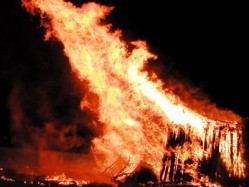Ask the Experts
How to protect your business from fire risks

Why DIY won’t do
Fire safety is such a crucial issue; you’ve got to get it right. A do-it-yourself approach often isn’t the wisest course. It’s not always cost-effective either. Scrimp on the details – or ignore the matter altogether – and you could find yourself facing eye-watering fines. Hotels and other catering establishments have found this to their cost facing penalties of hundreds of thousands of pounds in damage or fines for breaking the rules.
Of course, every hotel, pub and restaurant is different. As the owner or manager you know your business best and how it’s used. You know where the risks are.
So rather than diving in and installing fire alarms, extinguishers and safety signs, weigh up all the individual risks associated with your particular business and take the appropriate measures.
The easiest way to initially assess your fire safety responsibilities is by visiting the government website that deals with this area at https://www.gov.uk/workplace-fire-safety-your-responsibilities/fire-safety-advice-documents.
Don’t go it alone
It’s absolutely crucial to get the right advice. Especially if there are complexities. If you’ve got a large building, run a complicated operation or use high-risk equipment like deep fat fryers or gas-fired barbeques, call in a qualified risk assessor.
If you share a building you’ll need to carry out joint fire safety measures covering all businesses operating under the same roof. You’ll need to agree on effective evacuation plans not just for your staff and guests but your neighbours too. This is probably best done by an independent assessor.
Seek and find
So how do find a qualified risk assessor? Don’t be led by price. Be led by experience. Talk to businesses like yours. Find an established firm of assessors. Look at the work they’ve done. Ask the right questions. Do they have the right qualifications – not just a day long course? Which areas do they specialise in? Doing residential checks is very different from the hospitality business.
When they visit make sure they have access to all areas and give them all the relevant information. Above all, analyse their results to make sure it’s not just a ‘tick box’ exercise.
Keep it regular
Whether you use your own plans or those of a professional, review them every year. Check them whenever you make changes to your premises or experience ‘near miss’ events. You’ll need a rota for checking all safety equipment such as alarms or extinguishers. And make sure it’s the right specification for the job. Read the available information and understand the basics.
It’s very easy to make the wrong choices. For example, you see powder dry fire extinguishers widely recommended and used by ill-informed hospitality venues. Since they put out burning solids and gases, they’re seen as universal. But they create one heck of a mess. If you happen to have an expensively-furnished and elegantly-decorated venue the costs of cleaning up all that pressurized powder can be ruinous. When used these extinguishers also dramatically reduce visibility.
Carbon dioxide extinguishers leave no damage. Water extinguishers leave everything wet – but that’s all. As they say, the devil’s in the detail.
Be prepared
And that detail doesn’t just cover the obvious safety items such as alarms or extinguishers. All items of equipment in your premises and featured in your risk assessment should be regularly checked and maintained. Failure to do so can be punitive. One of the most common causes of fire in the catering sector is poorly maintained extractor fans.


























